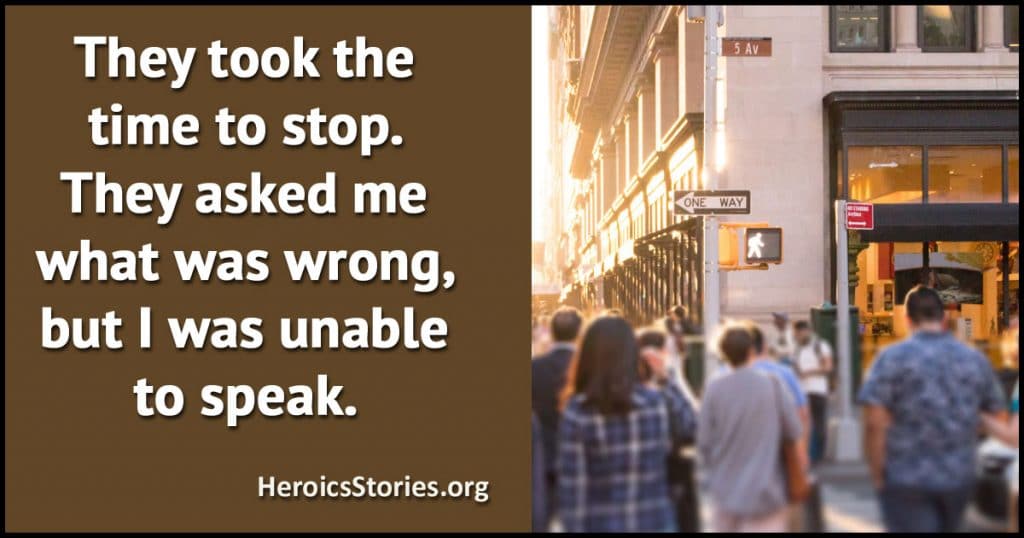by Sharon D. Smith
Syosset, New York, USA

At age 31, I developed narcolepsy, a sleep disorder that caused me to feel overwhelmingly sleepy on and off during the day. One of the symptoms of this disorder is cataplexy, which is a sudden loss of muscle tone similar to temporary paralysis. It’s brought on by sudden emotional stimuli. A cataplexy attack can be limited to one part of the body, say the face, or involve every muscle in the body. My attacks usually affect my whole body, causing me to fall to the ground. They generally last for a minute or two, but are prolonged if I continue to experience strong emotions. But unlike an epileptic, I remain fully conscious during an attack.
I was working in New York City when I developed narcolepsy. One evening, I decided to walk the 20 blocks to my commuter train to enjoy the cool fall weather. When I reached Herald Square, several young tourists asked for directions to Central Park. Easy enough: “Straight up 6th Avenue, about 25 blocks, you can’t miss it,” I told them. After they left, I realized I should have warned them not to venture into Central Park in the dark.
The emotional nature of my thoughts sent me into a full-body cataplexy attack. It was made worse by my fear of being alone and physically immobilized on a New York City street. I was near the heart of Herald Square, which is frequented by drug addicts, alcoholics and homeless people. Thoughts of being robbed ran through my mind. I leaned against the glass front of a shoe store, hoping I could manage to stay standing or at least slump down alongside the building. The store personnel saw my distress, yet stayed safe inside their locked store, unwilling to get involved.
Then two Black women about 60 years old appeared. They took the time to stop. They asked me what was wrong, but I was unable to speak. They stood next to me, one saying to the other that I must be having an epileptic seizure. Close enough! Their presence alone was such a comfort to me, it helped me recover faster. While they were discussing what to do, my muscle tone returned and I was able to tell them what had happened and let them know I’d soon be OK.
I thanked them over and over, but thanks alone can hardly repay their kindness. Now, whenever I hear comments with negative racial undertones I relate this story. These two ladies could easily have returned the racial prejudice they have endured from society by passing me by. Their willingness to help shows once again that people are best judged by their actions, not their appearance. Spreading this message allows me to feel I am returning the kindness of these two wonderful women, in a small but important way.
Podcast: Play in new window | Download (Duration: 4:12 — 3.1MB)


Well, first of all, I got a real surprise to see that this story was from someone from my little hamlet of Syosset, New York! Syosset is sort of in the middle of Long Island, a very nice place to grow up. I think that most people are good and would help someone in destress, as with most of these stories. But you never know until you experience it.
It was good of these two women to stop and try to be of help. Better yet that they thought of epilepsy. But I hope the woman got a bracelet to wear that would inform would-be helpers of what she suffers from.